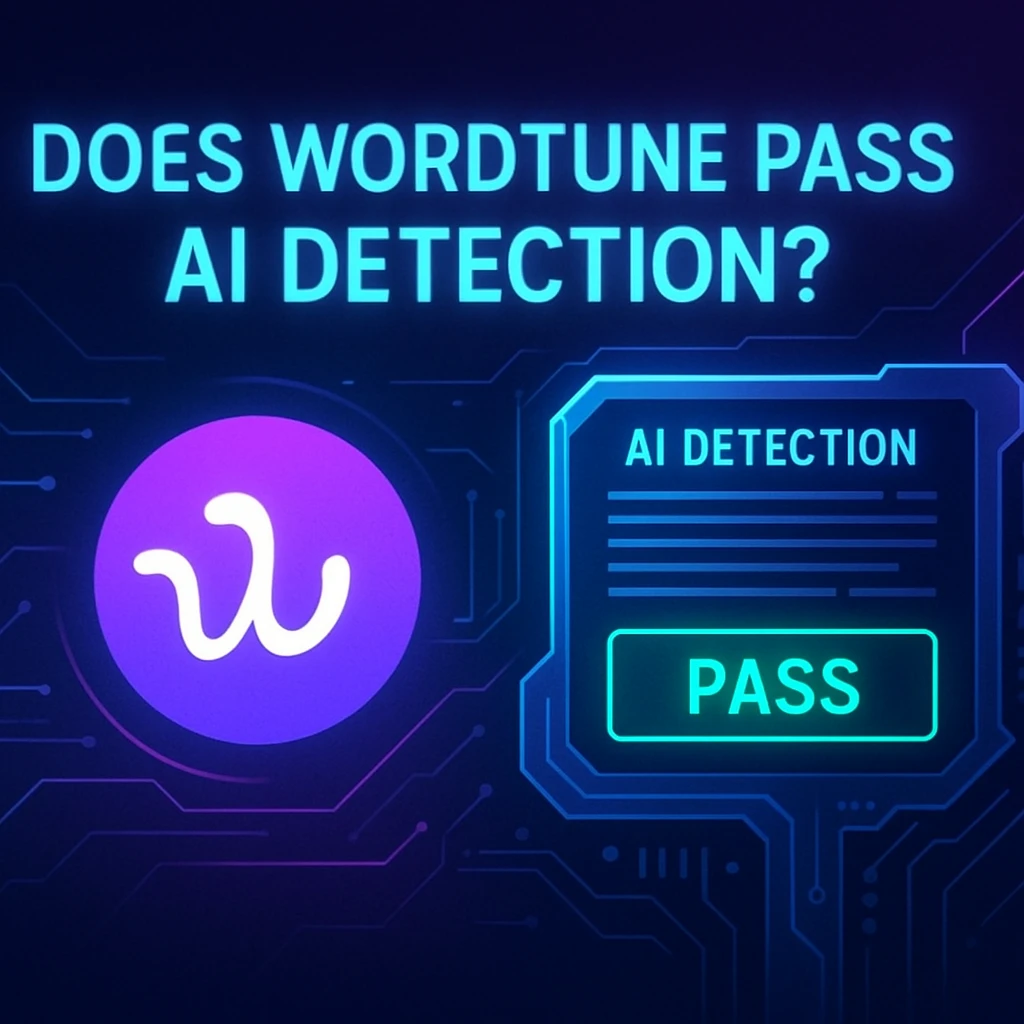As we all know it WordTune is an awesome rewriting assistant that helps you fix grammar, reword awkward sentences, and generally make your writing look neat. But if you’re thinking of using it as a secret weapon to elude AI detectors like GPTZero or Turnitin, you might be dissapointed. The short answer is that most of the times WordTune-edited text still gets flagged as “AI” – and the longer answer is that you shouldn’t rely on it to bypass detection anyway.
Why is WordTune not built to bypass AI detectors?
WordTune is not some magical tool that was purpose-built to outsmart platforms like ZeroGPT or Turnitin. Just like Quillbot it is basically a lightweight rewriter focusing on improving clarity or conciseness.
It can catch grammar errors, it can suggest synonyms, and it can do small rearrangements of sentences. But it doesn’t fundamentally obscure that “machine-style” pattern that many AI detectors search for, especially if your original text came from an AI writer.
So, if you’re counting on WordTune’s edits alone to pass you off as 100% human, well, that’s just not what it’s made for.
My personal experience with WordTune and AI detection
Let me share a story: I wrote a short essay about renewable energy for a class project. I used WordTune to polish some chunkier paragraphs, fix the grammar, and maybe add a little flair here and there.
Everything looked good to me. But guess what? When I tested it on GPTZero, it spat out a 78% “AI” rating, which basically means it considered my essay more AI than human. That freaked me out because I wrote most of it by myself - WordTune had only rearranged some sentences and corrected a few sloppy word choices.
Panicking a bit, I tried another tool called ZeroGPT, and it gave slightly better results – around a 50% – but still, it was enough to raise eyebrows if a teacher were super strict.
Thankfully, I had saved my original Google Docs with all the messy early drafts and silly grammar mistakes. When I showed my teacher the revision history, they saw I genuinely wrote it myself and used WordTune only for final touch-ups. That is basically how I avoided any trouble.
How do AI detectors figure this out?
AI detectors like Turnitin’s new AI checker, GPTZero, ZeroGPT, or Winston AI often rely on certain “markers” in text -- like repetitiveness, slightly unnatural phrase patterns, or that uncanny “too well-structured” style that large language models generate. As we have discussed WordTune isn’t itself a full-blown text generator, it does tidy up your prose in ways that might accidentally produce these patterns. So ironically, your text might look too squeaky clean, thereby triggering a false positive.
One single opinion that’s useful to you
If there’s one takeaway I want you to remember, it’s this: always save your draft versions. Seriously, keep your Google Docs or Microsoft Word revision history accessible. Because if some AI detector flags you, the best proof you can provide is showing that you typed it out and used WordTune only at the finishing stage. You can use our tool deceptioner if even after writing it yourself you get flagged by these stupid detectors.
Tips if you want to stay safe
- Keep rough drafts handy – My fiasco taught me that having a revision trail is the best defense.
- Manually tweak your sentences – Don’t just rely on WordTune’s suggestions. Add your own human quirks, maybe an occasional slang or “uh-oh” phrase.
- Mix up tools – If you want to push the boundaries, try more than one editing assistant. Sometimes combining them leads to less repetitive structure.
- Communicate with your instructor – Let them know you used an “editing assistant” rather than a “content generator.” This often clears up misunderstandings.
Is WordTune a form of cheating?
No, WordTune is not typically considered cheating because it doesn’t generate entire paragraphs or do your work for you. But do check your school’s policy – some instructors prefer that you keep your writing 100% raw, while others are fine with grammar and style assists. Just be transparent, because the problem arises when teachers think you used a full AI text generator to write everything.
The Bottom Line
WordTune is a helpful editing companion, not a stealth tool to bypass AI detectors. If you only rely on it to outsmart Turnitin or GPTZero, you could be in for a rude awakening when your polished text gets flagged. The best approach is to write your content honestly, use WordTune for polishing, and always keep those messy drafts somewhere safe so you can prove your process if needed. You might still get flagged once in a while, but at least you’ll have the evidence to fight any false allegations.



